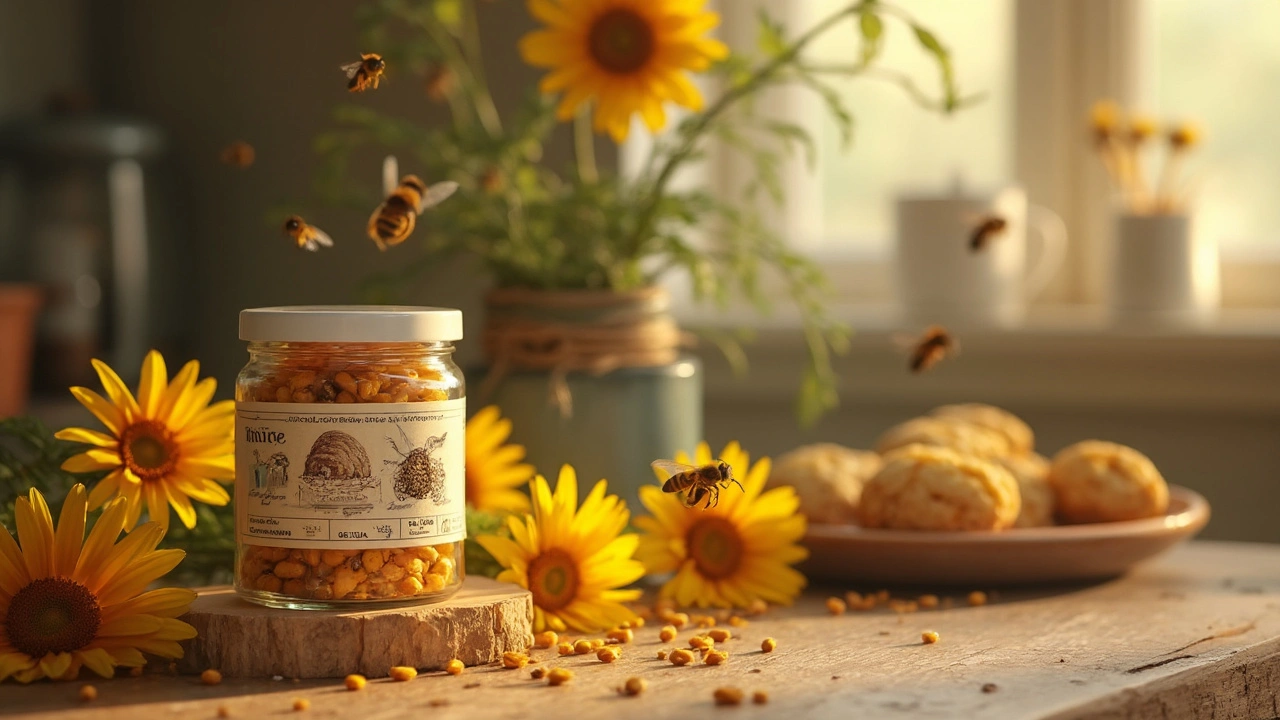Bee products: what they do, how to use them, and what to watch for
Bee products — honey, propolis, royal jelly, bee pollen and even bee venom — are common in home remedies and supplements. They can be useful for soothing a sore throat, supporting general wellness, or as a natural addition to your routine. But not every jar or bottle is the same, and there are real safety points to know before you try them.
How to use common bee products
Honey: Use raw honey for a sore throat or cough. Adults can take 1–2 teaspoons as needed; mix into tea or take straight. Do not give honey to infants under 12 months — risk of botulism. For wound care, medical-grade honey (like certain Manuka products with a UMF rating) is used topically, not table honey.
Propolis: This resinous mix from hive parts is sold as tinctures, lozenges, or creams. People commonly use 10–30 drops of a propolis tincture once or twice daily, or a lozenge as directed on the label. Topical propolis creams may help minor skin irritations, but patch-test first to check for sensitivity.
Royal jelly: Often sold in capsules or small jars, royal jelly is taken for energy or immune support. Typical supplement doses range from a few hundred milligrams to 1 gram daily — follow the product label. If you’ve had allergic reactions to bee stings or seafood, be cautious; royal jelly can trigger allergies.
Bee pollen: Taken as dry granules or capsules, people add 1 teaspoon to yogurt or start with a small pinch and build up to 1 teaspoon daily. Start very small if you have pollen allergies; reactions can be severe.
Buying, storage, and safety tips
Buy smart: look for clear labeling — origin, raw vs pasteurized, and any lab tests for purity or antibiotic residues. For Manuka honey, a UMF or MGO rating helps you compare potency and quality. Check expiry dates and prefer brands with transparent sourcing.
Store right: keep honey and dry bee products in a cool, dry place, away from direct sunlight. Seal jars tightly to avoid moisture. Tinctures and propolis drops usually keep well in a dark bottle; follow the label for storage instructions.
Watch for interactions and allergies: tell your doctor if you’re on blood thinners, have diabetes (honey contains sugar), or have a history of severe allergies. If you get hives, swelling, difficulty breathing, or chest tightness after trying a bee product, seek emergency care. For pregnancy or breastfeeding, check with a healthcare provider before starting supplements.
Quick checklist: 1) Start small and test for reactions. 2) Buy from reputable brands with clear labeling. 3) Avoid honey for infants under 1 year. 4) Tell your doctor if you take prescription meds. With those basics, bee products can be a useful, natural option — just use them carefully and pay attention to quality and safety.

Beeswax Dietary Supplements: Real Health Benefits, Myths, and What Science Says
- 12 Comments
- May, 16 2025
Are beeswax supplements the secret weapon your health routine is missing? This guide looks at surprising facts you never hear about, the real science, and things you should consider before grabbing that next bottle of bee magic. From how beeswax is made to its possible health perks, learn why it’s getting so much attention. Find out what’s hype and what’s worth your time, and see how it stacks up against other natural supplements.




